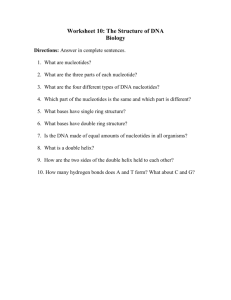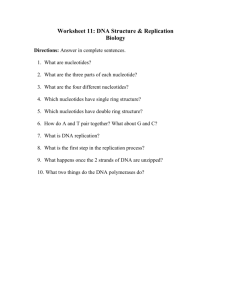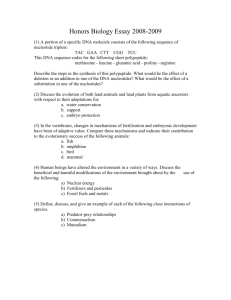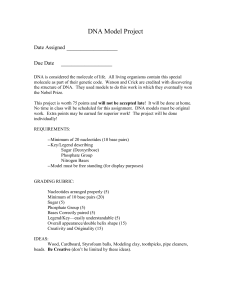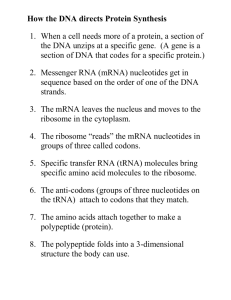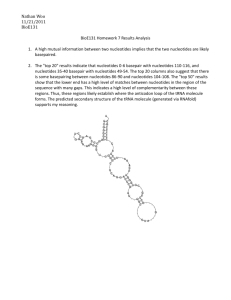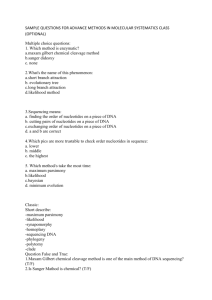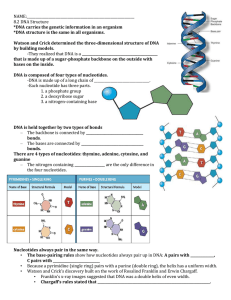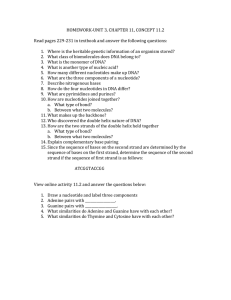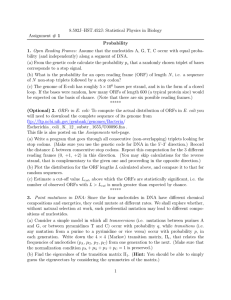Ultra-violet radiation from the sun has the consequence of causing... Benjamin Smith: Chemistry & Biochemistry
advertisement
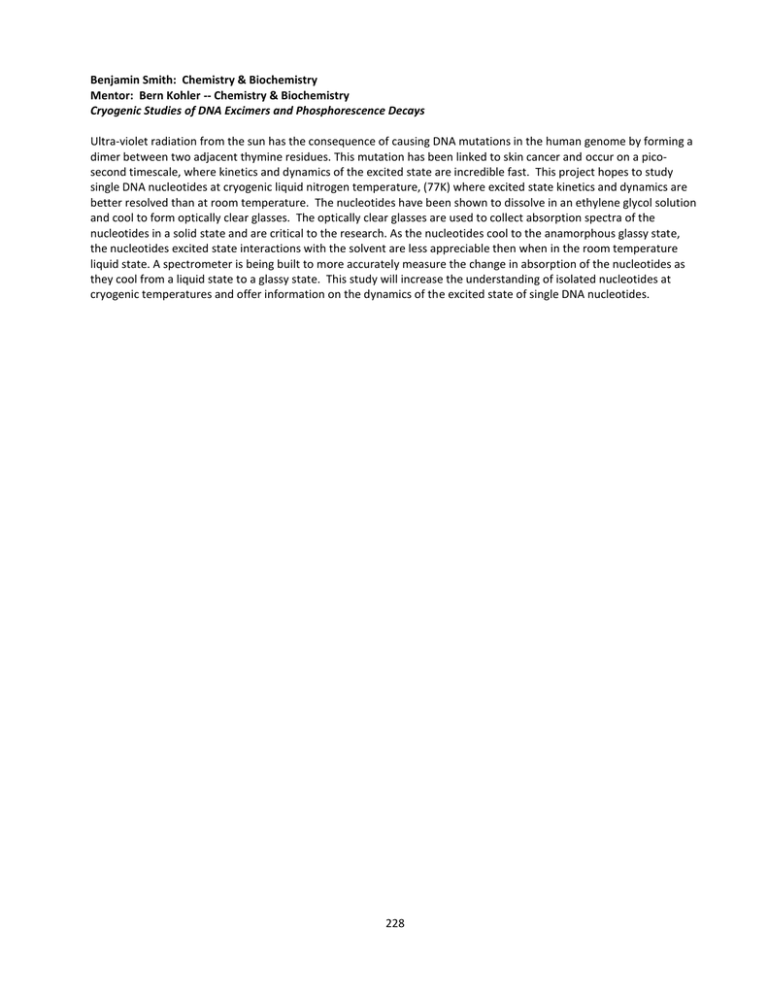
Benjamin Smith: Chemistry & Biochemistry Mentor: Bern Kohler -- Chemistry & Biochemistry Cryogenic Studies of DNA Excimers and Phosphorescence Decays Ultra-violet radiation from the sun has the consequence of causing DNA mutations in the human genome by forming a dimer between two adjacent thymine residues. This mutation has been linked to skin cancer and occur on a picosecond timescale, where kinetics and dynamics of the excited state are incredible fast. This project hopes to study single DNA nucleotides at cryogenic liquid nitrogen temperature, (77K) where excited state kinetics and dynamics are better resolved than at room temperature. The nucleotides have been shown to dissolve in an ethylene glycol solution and cool to form optically clear glasses. The optically clear glasses are used to collect absorption spectra of the nucleotides in a solid state and are critical to the research. As the nucleotides cool to the anamorphous glassy state, the nucleotides excited state interactions with the solvent are less appreciable then when in the room temperature liquid state. A spectrometer is being built to more accurately measure the change in absorption of the nucleotides as they cool from a liquid state to a glassy state. This study will increase the understanding of isolated nucleotides at cryogenic temperatures and offer information on the dynamics of the excited state of single DNA nucleotides. 228
